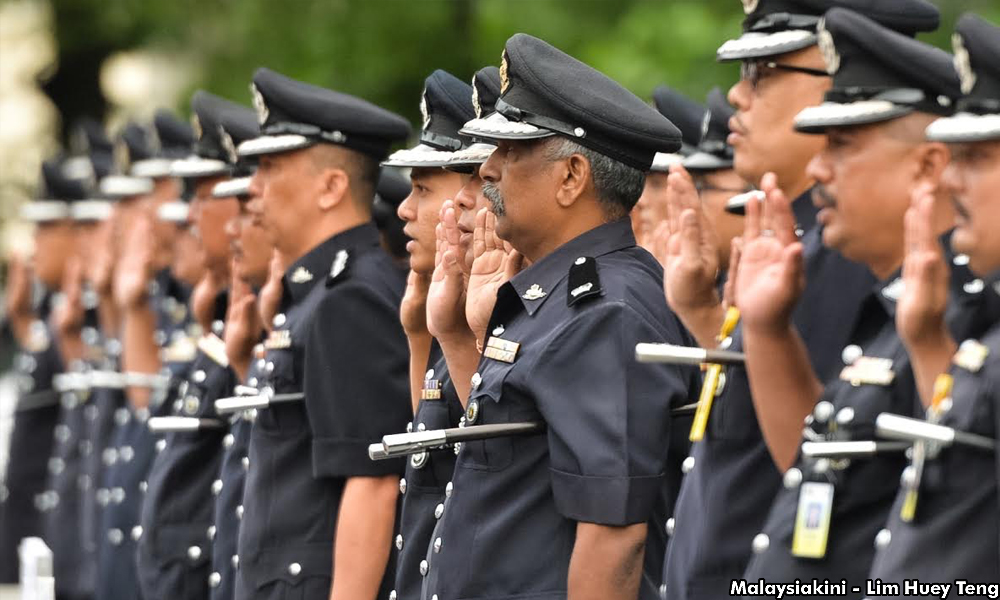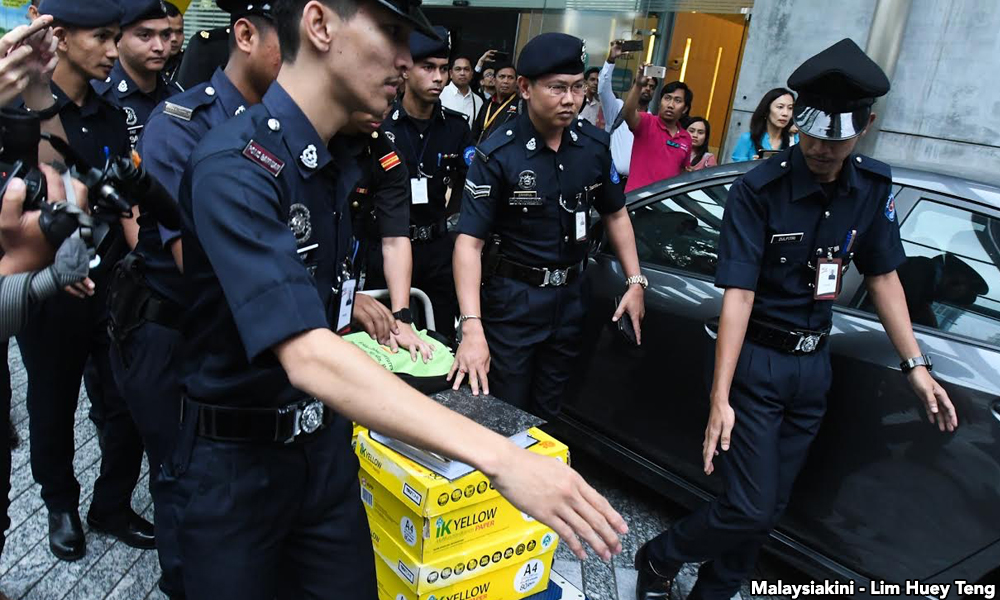
“How strange," continued the king, with some asperity; "the police think that they have disposed of the whole matter when they say, 'A murder has been committed,' and especially so when they can add, 'And we are on the track of the guilty persons.”
― Alexandre Dumas, "The Count of Monte Cristo"
― Alexandre Dumas, "The Count of Monte Cristo"
My apologies to Wan Saiful Wan Jan but I just had to answer the question he posed (and answered) in his piece "Should we decentralise the PDRM?" The piece was to highlight a study commissioned by think-tank Ideas titled "Reining in the IGP’s Power: Decentralisation as an option" by Nicholas Chan.
At this moment, the credibility of the Royal Malaysian Police (PDRM) is at its lowest. Deputy Prime Minister Ahmad Zahid Hamidi is the public face of all that is wrong with the state security apparatus. This is visible in either his reply to DAP’s Sim Chee Keong on the investigation of the mass graves of Wang Kelian and the status of the 12 police officers who were persons of interests in that investigation – that they were released "because there was no strong evidence to charge them for the offence" – or his telling Malaysians that the state security apparatus is "colour blind" (with regards to the Oktoberfest fiasco). But in my piece about his affection for politically-connected thugs, I say that Zahid “advocated a ‘shoot first’ policy for the police…in dealing with suspected gang members in the wake of a violent crime spree that has resulted in, according to him, Malays making up the majority of the victims”.
Nicholas Chan concludes his study with this – “This paper aims to posit a scenario of reform whereby the accountability of the IGP (inspector-general of police) is enhanced through having more structurally independent police chiefs in the country. The basis of this proposal stands on the premise that the IGP’s wide-ranging powers and interlocking relationship with the federal executive need to be dispersed, moderated, and restructured in a way that is more reflective of Malaysia’s federated system and rising demands for local democracy from its populace.”

While Wan Saiful (photo) is neutral in his claim that some politicise their criticisms about the overabundance of power the PDRM, which should not be in dispute, I would argue that there is ample evidence from the PDRM and the Umno state that the PDRM is biased towards the Umno establishment.
When it comes to the armed forces division of the state security apparatus for example, one politician even said that if he contested in a constituency with a military base, he would be sure to win with the postal votes. This, of course, takes into account the air force officers who blew the whistle on postal votes and how they were "used" by the establishment.
There is no point in being polite when advocating the decentralisation of police power, because anyone reading the Ideas study would come to the conclusion that the main reason why the power of the PDRM needs to be decentralised is because at present there is just too much room for abuse by interested parties and a near total lack of accountability.
‘Outsourced thugs’
Look, most Malaysians are estranged from the state security apparatus. Our politics is so toxic and repeated rejoinders by not only politicians but also their outsourced thugs that the state security apparatus is not only a “Malay” institution but also a mechanism of a ruling party, has deepened the divide between the average citizen and the institution that is supposed to provide security and stability within the confines of the law.
Having a state-level mechanism that holds the PDRM accountable to state-level administrators would not only make the PDRM relevant to local populations with specific security issues, but would also deter influence from the federal level on issues that are important to a particular state but that would be used as political capital to stoke whichever voting base is in need of validation.

Do not take my word for this state of unease with the PDRM. Here is what a seasoned establishment politician said about the state security apparatus and the ruling Umno establishment: “...jangan memandang rendah kepada kerajaan kerana mereka ada kuasa, ada televisyen, radio, duit dan media. Mereka juga ada alat-alat risikan dan sebagainya. Media dia lebih tahu pada kita. Dia tahu kita belum tahu lagi. Sama ada dengan kekuasaan itu, parti yang berkuasa akan kalah saya tidak tahu.” (Do not look down on the government because they have the power, they have the TV and radio stations, money and the media. They have tools of espionage. Their media knows more than we do. They know what we don't even know we don't know yet. With that power, whether the ruling party will lose, I don't know.)
With the above quote in mind, the most interesting section of the Ideas paper (for me) was this one: “Building on the Dzaiddin Royal Commission’s recommendation to enhance Special Branch accountability, we argue that organisational separation will limit the IGP’s power, and at the same time improve the position’s accountability.
“Considering that many of the functions of the Special Branch are handled by dedicated agencies separated from the police in other countries; for example, the MI5 and MI6 in the United Kingdom, or the Central Intelligence Agency (CIA) in the United States, this recommendation is not without precedents.
"Even as far as Malaysia’s neighbours are concerned, their national intelligence agencies are all separated from the police, such as the Internal Security Department of Singapore (the Republic’s Special Branch equivalent) and the Badan Intelijen Negara (BIN) of Indonesia.”
It is a matter of public record that I have written that I believe that our Special Branch is perhaps one of the most effective intelligence units in the world. However, I believe they are hampered by elements within the bureaucracy with agendas of their own.
Furthermore, from what current and retired personnel tell me, this process of Islamisation has had a deleterious effect on the way they operate, and when it comes to human trafficking, there are always various political fiefdoms to consider. The horrors of Wang Kelian is testament to that.
I would argue that if the PDRM is decentralised, the issues of deaths in custody no longer becomes solely a “federal government” issue, but also shines a spotlight on local state officials and how they investigate and prosecute the offenders (if any) in these cases. In this way, we can observe how each state handles this issue, and perhaps incorporate or reject standards and practices that encourage or hinder the way the PDRM deals with suspects in their custody.
I am sure there are many policy wonks who could argue one way or another on this issue, but after decades of undue influence on our security apparatus, we need radical ideas that perhaps a Pakatan Harapan government would consider. After all, when a former prime minister who now is part of the opposition claims that the ruling establishment uses the state security apparatus for its own purposes, and this is supported (proudly in some instances) by current political operatives from the government, radical ideas are needed, not political bromides.
To put it plainly, decentralising the PDRM is not an option. It is the only option.
S THAYAPARAN is Commander (Rtd) of the Royal Malaysian Navy.- Mkini
No comments:
Post a Comment
Note: Only a member of this blog may post a comment.